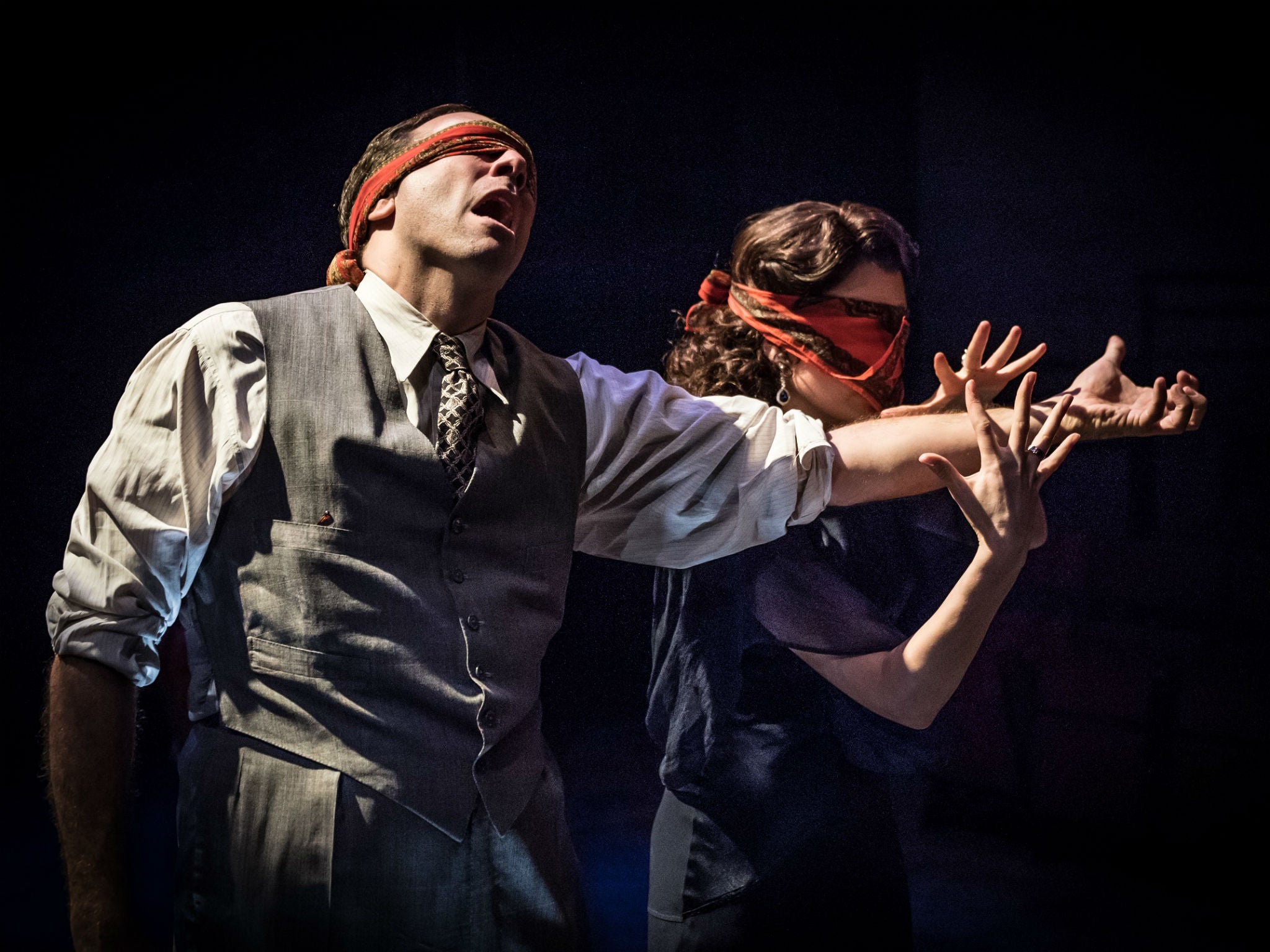Describe the Night, Hampstead Theatre, London, review: Not for folk who like to leave their brains in the cloakroom
Rajiv Jospeh has written a massively ambitious play that hops back and forth across a century of Russian history

The title of Rajiv Joseph's massively ambitious and intricate play comes from an entry in the journal of its most haunting character, the Jewish-Ukrainian writer Isaac Babel. He was shot dead in 1940, a victim of Stalin's Great Purge. Hopping back and forth across almost a century of Russian history, the piece connects the paranoid orgy of disinformation that kept the Soviet state in business with the post-truth world of Putin, ruthlessly nostalgic for that kind of “greatness.”
The proceedings begin in 1920 and an imagined meeting during the between two real-life figures: Babel (Ben Caplan), who was then a war correspondent, and Nikolai Yezhov (David Birrell) a young Captain in the Russian Red Calvary who would later become the head of Stalin's secret police. Yezhov is baffled and threatened by Babel's need to “describe” his personal impressions in his journal. The criterion for what counts as true and false is more complex in that activity than in sending a wire report, he's troubled to realise.
Despite himself, though, he's drawn to the author's storytelling powers and for a while it looks as though the pair will become close friends. But Babel goes on to have an affair with Yezhov's wife Yevgenia and this, plus the terrible strain of the purges in which truth and lies swap places, propel the two of them to a grisly date in a torture chamber.
All of Babel's manuscripts are sadistically fed to the furnace in front of him. Only the diary survives, becoming a recurrent preoccupation in this zigzagging play which flits around flashpoints: Moscow in the Forties; East Berlin as the Wall fell; Smolensk in 2010 after that suspicious crash that obliterated the Polish president and his cabinet.
Compounding the complications is the mischievous way Joseph himself mixes the historical with the imaginary. He takes the liberty of having Yezhov survive to the end of the Cold War – an ancient bureau chief who is relieved of his duties by a certain blonde KGB agent with a passion for judo and a cosmetically impeccable record (played by Steve John Shepherd). Babel's diary did genuinely survive but was it really recovered from a dying passenger amidst the wreckage of that doomed 2010 flight.
The American dramatist is too clever not to realise that this opens him to the charge of wanting it to have it both ways. The blurred lines between truth, fiction and conspiracy theory exposed by methods that resort to magical realism and a little creative reshaping of the record? I couldn't get my head round whether the play takes this contradiction on board to telling effect or whether it is just outsmarting itself.
But the intellectual daring and emotional nuance of the piece come through strongly in Lisa Spirling's remarkably clear and undaunted production, performed against a backdrop of filing cabinets. The idea that he or she who controls the narrative controls reality is expressed through a sophisticated interweaving of stories over which the production never loses control, even if the pace drags occasionally under the weight of detail.
The show is nearly three hours long and it's not for folk who like to leave their brains in the cloakroom. But if you stay the course, you'll find that this is a challenge that is cumulatively most invigorating.
Until 9 June (hampsteadtheatre.com)
Subscribe to Independent Premium to bookmark this article
Want to bookmark your favourite articles and stories to read or reference later? Start your Independent Premium subscription today.

Join our commenting forum
Join thought-provoking conversations, follow other Independent readers and see their replies